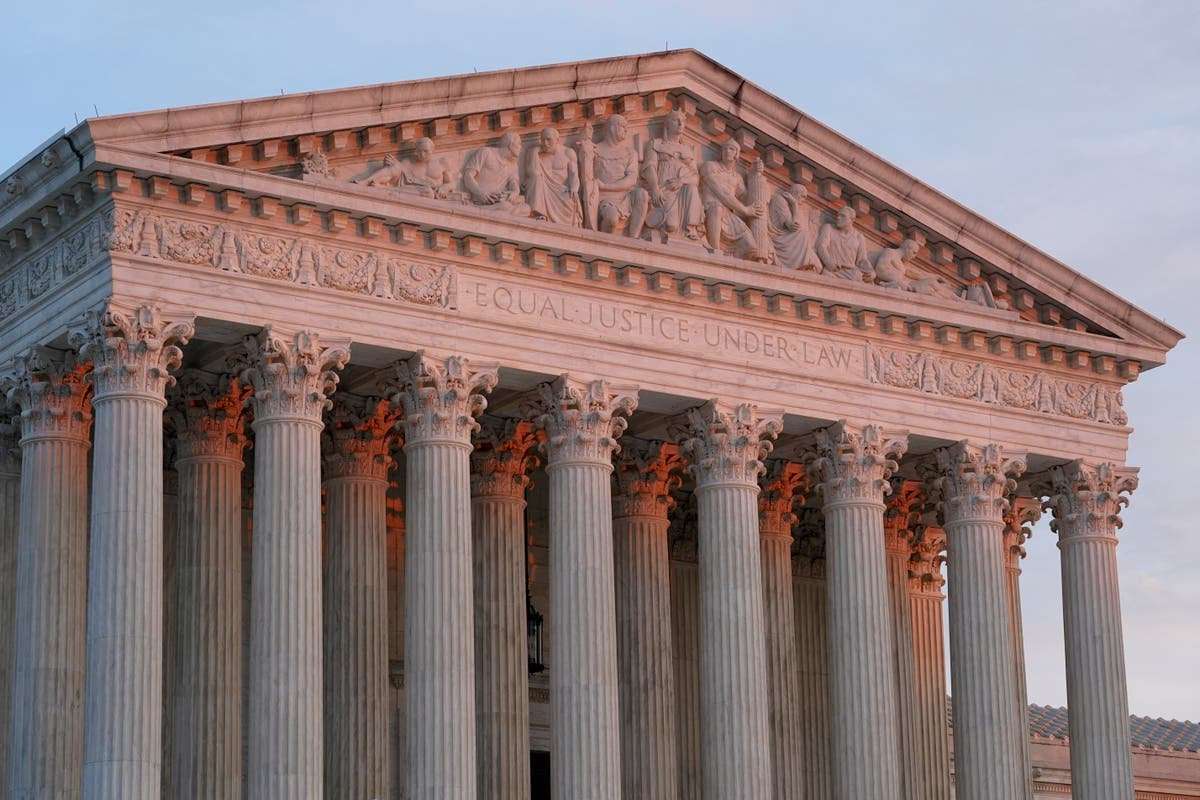Sign up for the daily Inside Washington email for exclusive US coverage and analysis sent to your inbox Get our free Inside Washington email Please enter a valid email address Please enter a valid email address SIGN UP I would like to be emailed about offers, events and updates from The Independent. Read our privacy notice Thanks for signing up to the
Inside Washington email {{ #verifyErrors }} {{ message }} {{ /verifyErrors }} {{ ^verifyErrors }} Something went wrong. Please try again later {{ /verifyErrors }}
The US Supreme Court made headlines this week for a ruling written by Justice Ketanji Brown Jackson that uses the correct pronouns and name for a transgender woman.
With Wednesday’s ruling, the court removed a procedural barrier for a non-US citizen to appeal a denial of protection from removal decision. It was a legal victory for Estrella Santos-Zacaria, a migrant from Guatemala who reached the US, fleeing persecution on the basis of her gender and sexual orientation and is seeking to stay in the country.
Throughout the opinion, which was joined by the court’s three other liberal justices, including Chief Justice John Roberts, Justice Brett Kavanaugh and Justice Amy Coney Barrett, Ms Jackson uses “she” and Ms Santos-Zacaria’s pronouns to refer to her, even though she was assigned male at birth. Ms Jackson also uses Ms Santos-Zacaria’s chosen name instead of her dead name.
Justice Samuel Alito wrote a concurring opinion that did not misgender or dead name Ms Santos-Zacaria, which embattled Justice Clarence Thomas joined.
Legal scholars and observers of the court noted that not only did the opinion correctly gender Ms Santos-Zacaria, but also that it used more humanising language for non-citizens than past opinions have.
“The Court reads the statutory word “alien” to mean a non-citizen (in a footnote),” former US attorney Joyce Alene wrote on Twitter. “Non-citizen, not illegal alien or similar dehumanising term. 7 justices signed on to Jackson’s decision in full & the concurrences don’t mention it. This is huge progress on both fronts.”
The court’s ruling struck some as particularly meaningful, given that it comes from a majority-conservative body in the midst of a wave of anti-transgender bills in state legislatures. There have already been more anti-LGBT+ bills introduced in state legislatures this year than in any other year in American history.
The ruling also comes as Title 42, the pandemic-era restrictions on migration to the US, ended on Thursday. In preparation for the lifting of Title 42, president Joe Biden announced new measures restricting access to asylum earlier this week in a move that has frustrated progressives.

babbling_on on May 12nd, 2023 at 12:45 UTC »
Giving up an inch before they take another mile.
Picture-unrelated on May 12nd, 2023 at 06:51 UTC »
I don’t want to ruin everyone’s spirits but everyone does realize that there was no ruling stating that you MUST use preferred pronouns - they simply used the preferred pronouns in the ruling.
The rules of case captioning requires for this to be the case and there have been previous examples of using preferred pronouns, ie Grimm 2017.
It’s still significant and wonderful progress and the ruling itself is as well but it’s really not about pronouns at all, it’s about immigration processes
Beckles28nz on May 12nd, 2023 at 05:26 UTC »